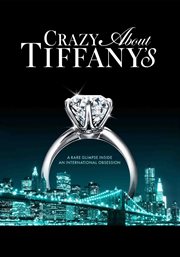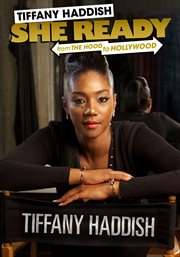Review by Booklist Review
Although the country is still at war, Manhattan during the summer of 1945 is an intoxicating place, especially for two fresh-faced young coeds who step off a train from Iowa armed with little more than their youthful exuberance and the name of a very influential contact. The combination is enough to land Marjorie and her best friend, Marty, jobs as pages at the prestigious Tiffany & Co., making them the first female employees ever to work the sales floor. From this groundbreaking vantage point, the girls see and do it all, from assisting notorious gangsters and international playboys at the jewelry counters, to rubbing elbows with celebrities at the city's legendary nightclubs, to glimpsing General Eisenhower during his triumphant victory parade, to kissing soldiers in Times Square on V-J Day. Remarkably, this winsome memoir was written 60 years after that giddy summer spent pinching pennies and dreaming of diamonds, yet Hart's infectious vivacity resonates with a madcap immediacy, delectably capturing the city's heady vibrancy and a young girl's guileless enchantment. --Carol Haggas Copyright 2007 Booklist
From Booklist, Copyright (c) American Library Association. Used with permission.
Review by Publisher's Weekly Review
At the age of 82, Hart, a professional cellist, recalls 1945, when she and her best friend, Marty, students at the University of Iowa, spent the summer in Manhattan, in this pleasant but slight memoir. Failing to obtain work at Lord & Taylor, the pair, self-described as long-limbed, blue-eyed blondes, were hired at Tiffany's-the first female floor sales pages, delivering packages to the repair and shipping department, for $20 a week. Hart details their stringent budget ("1. Two nickels for subway. 2. Sandwich at the Automat: 15 cents") and describes, somewhat breathlessly, what a thrill it was to see such luminaries as Marlene Dietrich and Judy Garland shop at the fabled store. Her romance with a midshipman, the combat death of her cousin, the news of the dropping of the first atomic bomb and a vivid account of the celebration in Times Square after Japan's surrender convey a sense of the WWII era, but without adding much illumination. She does, however, evoke New York City as seen through the eyes of two innocent smalltown girls. 16 pages of b&w photos and illus. (Apr.) (c) Copyright PWxyz, LLC. All rights reserved
(c) Copyright PWxyz, LLC. All rights reserved
Review by Library Journal Review
What was it like for a University of Iowa graduate to land a job at Tiffany's in the summer of 1945? Ask 82-year-old Hart. (c) Copyright 2010. Library Journals LLC, a wholly owned subsidiary of Media Source, Inc. No redistribution permitted.
(c) Copyright Library Journals LLC, a wholly owned subsidiary of Media Source, Inc. No redistribution permitted.
Review by Kirkus Book Review
Manhattan during the summer of 1945, as the author remembers it. The country was at war, food was rationed and money was tight, but University of Iowa coeds Marjorie Jacobson (now Hart) and Marty Garrett somehow scraped together $40 each to buy roundtrip train tickets so they could spend a summer in New York. On arrival, the Midwestern beauties sublet an apartment in Morningside Heights and landed jobs as pages at Tiffany & Co. Never before had the venerable store hired young women to run errands from the sales floors to the mysterious upper reaches of the fabled Fifth Avenue emporium, but during wartime, everyone had to sacrifice. The discreet tap of a salesman's diamond ring (they all sported one) against a glass display case would set Marjorie and Marty, wearing silk dresses that matched Tiffany's trademark blue, skittering in high heels across polished floors. Between assignments, they watched for celebrity shoppers. Who could be next? Judy Garland and Vincente Minnelli? Marlene Dietrich? The Duke of Windsor? In the evenings and on weekends, the wide-eyed yet commonsensical duo embraced all that 1945 New York had to offer: the Stork Club, The Glass Menagerie and Carousel on Broadway, ice cream sundaes at Schrafft's. Midshipmen escorted them to Jack Dempsey's and to Greenwich Village eateries. Kindly neighbors invited them over for lemonade and musical evenings at which Marjorie played the cello. Along the way, they developed crushes on men in uniform and endured such mild work traumas as a string of pearls coming undone in an elevator, but the undoubted highlight of their summer was joining two million other revelers in Times Square on August 14 when Truman announced victory in Japan. The 82-year-old author's memories have been polished smooth over the course of six decades, and her warm account of more innocent times makes an unspoken comparison with the way we live now. A fond backward glance. Copyright ©Kirkus Reviews, used with permission.
Copyright (c) Kirkus Reviews, used with permission.




